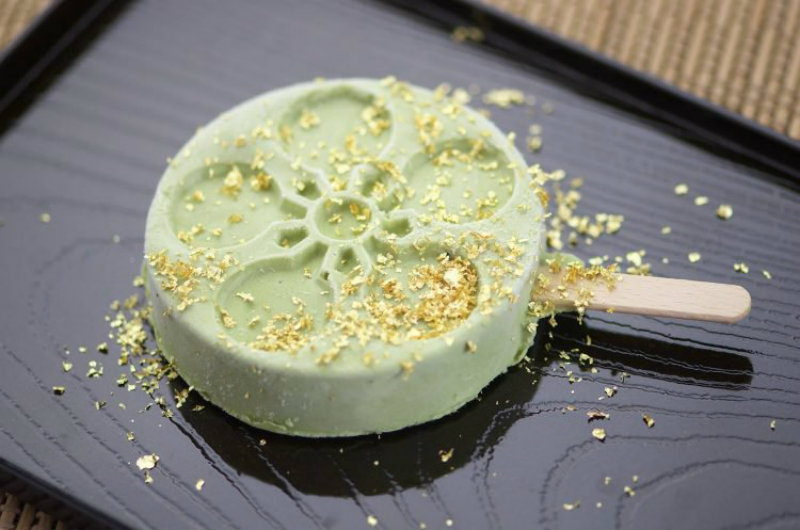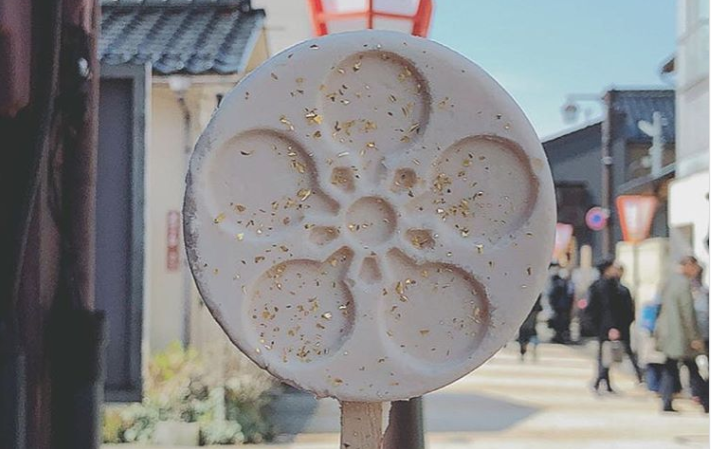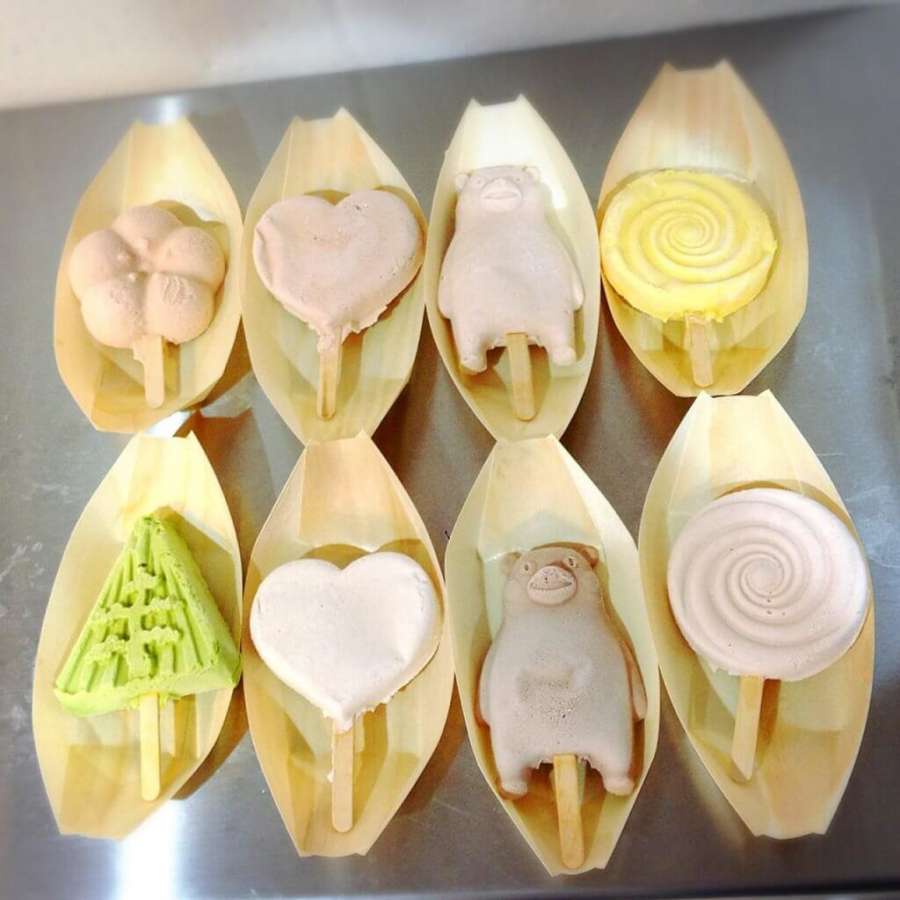This invention was discovered by chance by the Biotechnology Development Research Center in Kanazawa while trying to recycle leftover strawberries in Miyagi Prefecture. They invited a baker to research a new use for the polyphenol compound extracted from unsold strawberries. After many trials and errors, the baker discovered that ice cream would become firmer when combined with this compound.
This gave the center's research team new inspiration, and they began working with developer Tomihisa Ota in Kanazawa to create a food item that could withstand the summer heat. The company launched its marketing campaign in April 2018, and their first product was the "Kanazawa non-melting ice cream."

Polyphenol, a chemical compound containing tannins (found in teas), has the ability to slow the breakdown of water and oil molecules. This means that the fat and water in Kanazawa ice cream will not melt under the influence of heat. This non-melting ice cream is produced in many different shapes and flavors.
Surprisingly, this ice cream is very popular among Japanese people. 2018 was a record-breaking hot summer year for Japan. While regular ice cream melts instantly in the Japanese summer heat, Kanazawa non-melting ice cream can withstand 5 minutes before beginning to melt. This non-melting ice cream is currently sold at Kanazawa Ice cream shops and in major Japanese cities such as Tokyo and Osaka.



 VI
VI EN
EN
















(Copy).jpg.jpg)
.jpg.jpg)





.jpg.jpg)







